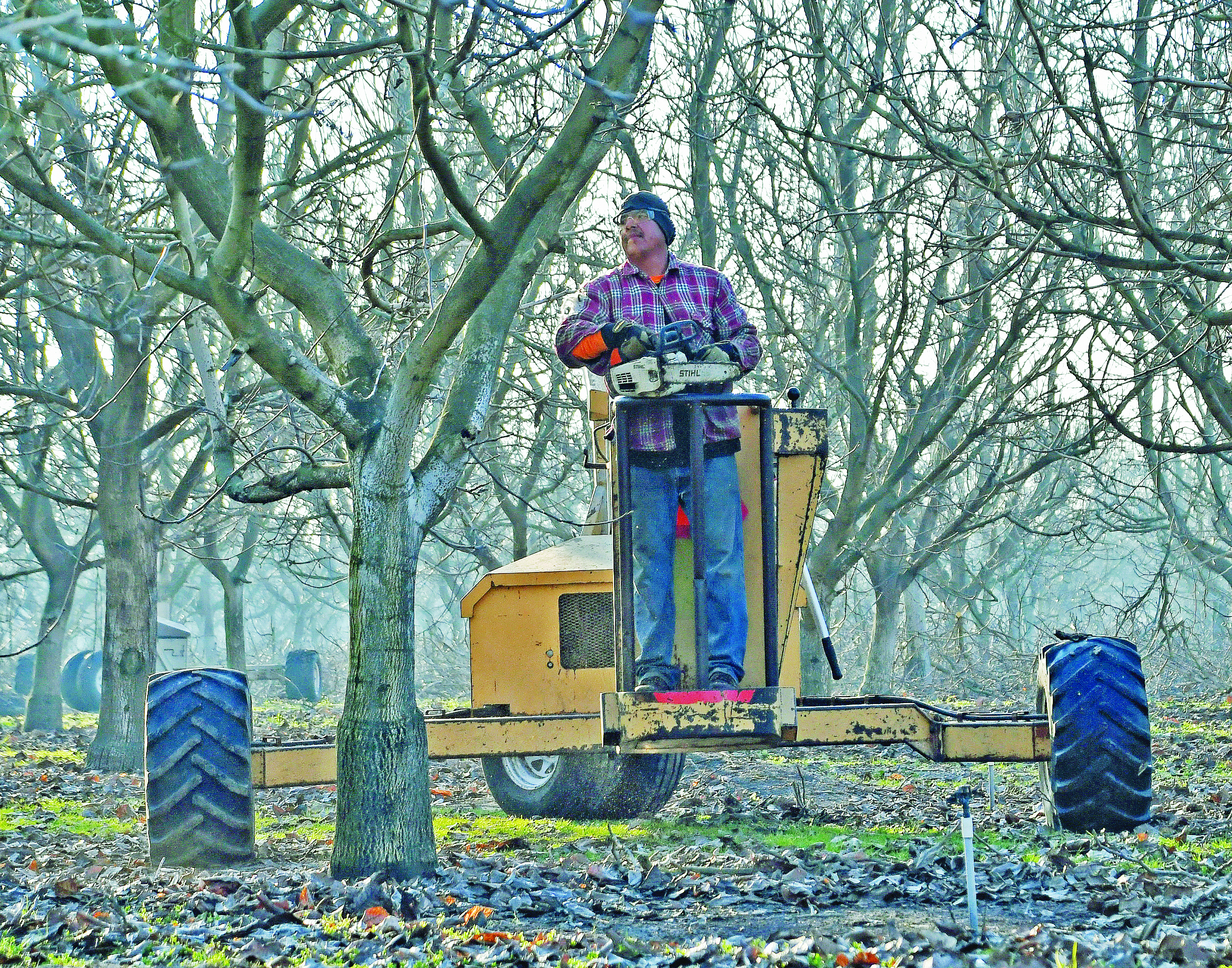By Vicky Boyd
Legislation that bans manufacturers from selling new small gas-powered off-road engines in the state after Dec. 31 targets the lawn maintenance industry, but it also could spill over into agriculture.
That’s because some of the gas-powered outdoor power equipment farmers use – such as smaller chain saws, portable generators and pressure washers – meet the bill’s threshold of 25 horsepower or less. The California Air Resources Board rule applies to the sales of model year 2024 and beyond, but owners of older model year small gas-powered equipment will still be able to use and repair them. And retailers with model year 2023 gas-powered equipment will be allowed to sell existing inventory after Dec. 31.
While San Joaquin Farm Bureau Second Vice President James Chinchiolo isn’t necessarily against zero-emission equipment – he owns a battery powered chainsaw himself – he said he made the decision on his own.
“I can tell you it’s our go-to tool,” said Chinchiolo, who grows walnuts and cherries with his father near Lodi and Linden. “I think the technology is fantastic, but it was my choice. We’ve been building our fleet of electric stuff over time. I just don’t think it’s right to force it on anyone. Let the market take over.”
Figuring out exactly what equipment the legislation covers is complicated, said Chris Bishop, regional manager for Stihl in Stockton.
The U.S. Environmental Protection Agency has sole authority to establish emission standards for what are classified as “preempt engines” in new farm and construction equipment under 175 hp. That includes fence post-hole augers, concrete saws and pumps larger than 40 cc.
Where it gets cloudy is with something like gas-powered chain saws, Bishop said. Those 45 cc and smaller fall under the air board’s pending sales ban because they’re considered more of a homeowner’s tool. Gas-powered chain saws larger than 45 cc, called top-handle chain saws by equipment manufacturers, will still be allowed to be sold in the state after Jan. 1 because they’re designed for farming and forestry professionals.
Dave Simpson, a Lodi-area winegrape grower, uses what he describes as a homeowner chain saw – the smallest gas-powered Stihl model that Big Valley Tractor sells – to cut up larger pieces of grape vines his pruning crew has removed.
“I run the chain saw at least once a week for a few hours to cut up the wood coming out of the field,” he said.
When it comes to tools for his pruning crew, Simpson long ago went with battery powered reciprocating saws for safety reasons.
“It’s dangerous if you hit the cordon wire with a chain saw,” he said.
Simpson’s vineyard abuts his house, so workers can come back periodically to exchange spent batteries for full ones on the plugged-in chargers. During a typical day, a pruner will run through three batteries.
“The rub for me is you can’t just charge them anywhere,” Simpson said. “You have to plug them in. In a small place like mine, it’s no big deal.”
But if he were involved with a large vineyard in a remote area like the Delta, for example, he said charging batteries would be a challenge.
Bishop said it was for similar reasons that a large-scale almond grower he knows decided to begin buying larger federally exempt gas-powered chain saws rather than moving toward battery powered equipment. The grower had been buying cheaper, smaller units because the workers didn’t take care of them.
But moving above 45 cc comes with a cost. The larger exempt saws cost about $350 each compared to the smaller ones that ran about $200 each, he said.
What’s behind the pending ban?
Assembly Bill 1346, authored by Marc Berman, D-Palo Alto, was signed into law in 2021. It directed the California Air Resources Board to develop regulations that ban manufacturers from selling small off-road spark-ignited engines of 25 hp or less in the state beginning Jan. 1, 2024. Equipment with diesel engines and stationary equipment are exempt.
The bill also recommended the Legislature pass $30 million in CARB funding for purchase rebates of new zero-emission equipment. That money has already been spent.
In addition, the air board has cost-share programs to help commercial landscape companies transition to battery powered equipment. Zero-emission is defined as electric battery powered or plug in, not propane, natural gas, gas or diesel.
The ban on sales of new gas-powered portable generators and pressure washers would be implemented in two phases under the legislation. Beginning with model year 2024, emission standards for new models will be 40% to 90% more stringent than current standards. By 2028, emission standards for all new portable generators and large pressure washers sold will be zero.
The latest rules governing small off-road engines are amendments to CARB’s existing off-road engine regulations first adopted in 1990. They are designed to reduce emissions of smog-forming pollutants, according to CARB.
The regulations apply to manufacturers and will impact equipment beginning with the 2024 model year, according to the air board. In addition, retailers who have model year 2023 gas-powered equipment on Jan. 1 can sell existing inventory.
“You’ll see a big difference in 2025 because that’s when everything will be running out supply-wise,” Bishop said.



